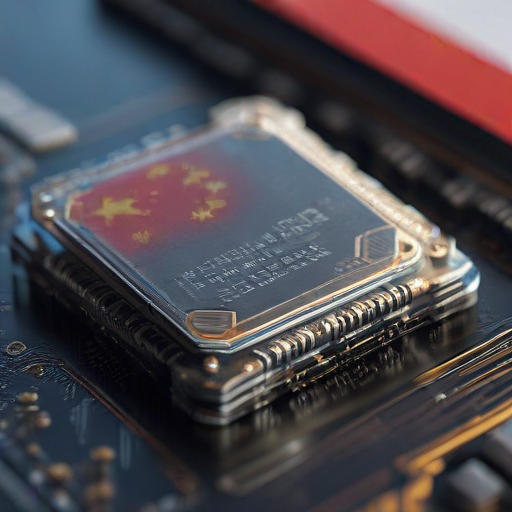As the United States contemplates enforcing stricter trade restrictions aimed at preventing advanced semiconductor technology from reaching China, Nvidia is reportedly developing a variant of its cutting-edge AI chips tailored to meet these new regulations. This move reflects the chipmaker’s adaptability in a rapidly changing geopolitical landscape.
According to Reuters, Nvidia is collaborating with local distribution partner Inspur to introduce the “B20” chip specifically for the Chinese market. This new product is anticipated to begin shipping in the second quarter of 2025. Although Nvidia has chosen not to officially comment, industry insiders suggest that this strategic development is part of their efforts to maintain a foothold in China’s lucrative market.
Nvidia has already designed three chips that adhere to U.S. export control measures, including the H20, which has seen a price cut to remain competitive against its local rival, Huawei. Despite initial challenges, reports indicate that sales of the H20 chip are gaining momentum. Nvidia is projected to sell over one million H20 chips in China this year, generating an impressive revenue of around $12 billion, which is significantly higher than Huawei’s expected sales of its Ascend 910B chip.
However, the outlook is not entirely smooth, as analysts from Jefferies caution that further U.S. restrictions could jeopardize the H20 chips. The upcoming annual review of semiconductor export controls could lead to new enforcement actions, including potential bans specifically targeting the H20. Analysts suggest that such restrictions might arise as a result of product-specific bans, modifications to computing power limitations, or adjustments to memory capacity caps.
There is also speculation that the U.S. may broaden its export controls to encompass other Asian countries such as Malaysia, Indonesia, and Thailand, or may target overseas Chinese firms, though implementing such measures presents its own set of challenges.
Overall, while Nvidia faces hurdles due to trade restrictions, its innovation and proactive strategies showcase the company’s resilience. The ongoing development and anticipated sales of its AI chips indicate that Nvidia is committed to maintaining its competitive edge in the global semiconductor market.
In a time when technology companies must navigate complex international relations, Nvidia’s efforts to adapt serve as a testament to the dynamic nature of the industry and highlight the significant demand for powerful AI tools.
